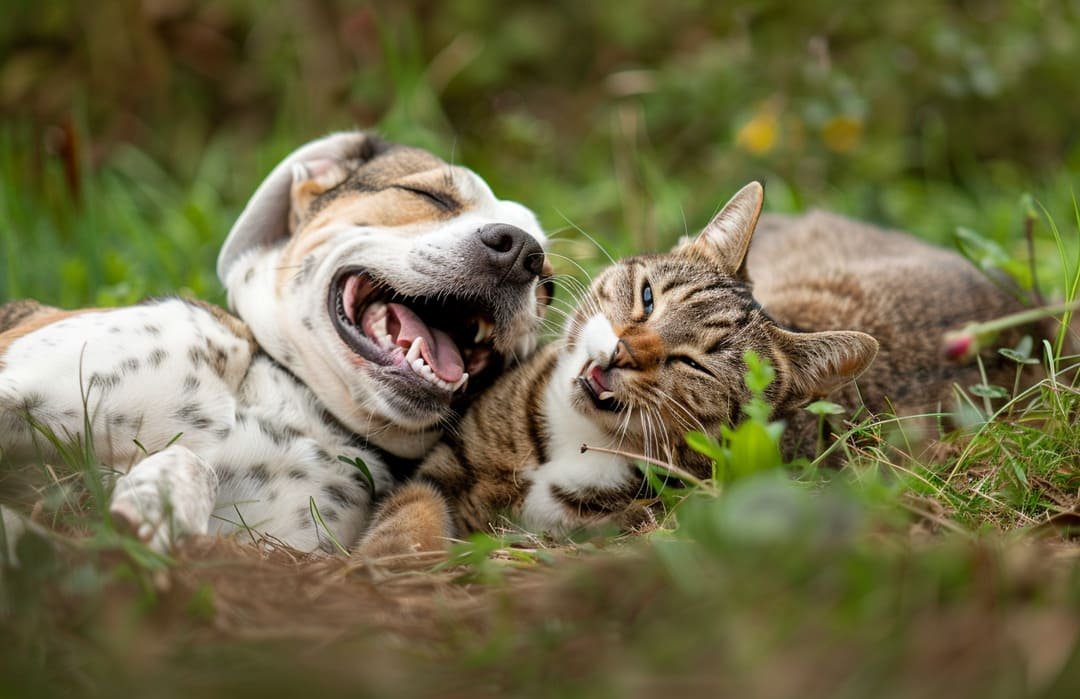Blood in cat poop can be a distressing sight for pet owners, signaling potential health issues that require prompt veterinary care. Understanding the significance of blood in your cat's stool is crucial for their well-being. Let's delve into the essential veterinary care guide to address this concerning symptom and ensure the best possible outcomes for your feline companion.
Understanding the Causes of Blood in Cat Poop
Common Reasons for Blood in Cat Stool
When you notice blood in your cat's poop, it can be concerning. Several factors could contribute to this issue, including:
-
Dietary Issues: Abrupt changes in diet or sensitivity to certain ingredients can lead to digestive problems.
-
Parasitic Infections: Worms or other parasites can cause irritation and bleeding in your cat's intestines.
-
Inflammatory Bowel Disease (IBD): Chronic inflammation in the gastrointestinal tract can result in bloody stools.
-
Trauma or Injury: Injuries or trauma to the digestive system can manifest as blood in the feces.
Importance of Identifying the Underlying Cause
Understanding the root cause of blood in your cat's poop is crucial for providing appropriate veterinary care. Ignoring this symptom could lead to further health complications for your feline companion.
Potential Health Issues Associated with Blood in Cat Poop
Blood in cat poop is not a condition to overlook, as it could indicate serious health issues such as:
-
Colitis: Inflammation of the colon that presents with blood in the stool.
-
Gastrointestinal Tumors: Presence of tumors in the digestive tract can lead to bleeding.
-
Infections: Bacterial or viral infections can cause gastrointestinal distress and bloody stools.
To learn more about how to address blood in your cat's stool, consult a trusted veterinary professional for a thorough diagnosis and treatment plan.
Diagnostic Steps for Blood in Cat Poop
Consulting a Veterinary Professional for Diagnosis
-
Schedule a Vet Visit: If you observe blood in your cat's stool, it's essential to seek professional help promptly.
-
Provide Details: Describe the color, consistency, and frequency of the bloody stools to the vet for a more accurate assessment.
-
Physical Examination: The vet will conduct a thorough physical exam to evaluate your cat's overall health and potential underlying issues.
Diagnostic Tests and Procedures for Determining the Cause
-
Stool Sample Analysis: Testing a stool sample can help identify parasites, infections, or other gastrointestinal issues.
-
Blood Work: Blood tests may be necessary to assess your cat's overall health and detect any abnormalities.
-
Imaging Studies: X-rays or ultrasounds may be performed to visualize the internal structures and identify potential concerns.
Understanding the Severity of the Condition
-
Assessment by a Professional: Your vet will determine the severity of the condition based on diagnostic findings.
-
Treatment Plan Discussion: Once the diagnosis is confirmed, the vet will discuss treatment options and next steps with you.
-
Follow-up Care: Regular follow-up visits may be required to monitor your cat's progress and adjust the treatment plan accordingly.
For more detailed information on the diagnostic process for blood in cat poop, refer to this insightful guide on feline health.
Treatment Options for Cats with Blood in Their Poop
Veterinary Care Guidelines for Managing Blood in Cat Stool
When addressing blood in your cat's poop, it's crucial to follow these veterinary care guidelines:
-
Prescribed Medications: Your vet may recommend specific medications to treat underlying conditions causing blood in the stool.
-
Dietary Recommendations: Adjusting your cat's diet to include easily digestible foods or specialized diets can aid in resolving gastrointestinal issues.
-
Hydration Support: Ensuring your cat stays hydrated is essential for overall health and recovery.
Medications and Therapies for Treating Underlying Conditions
-
Antibiotics: If an infection is the root cause, antibiotics may be prescribed to target the bacteria causing the issue.
-
Anti-inflammatory Drugs: Medications to reduce inflammation in the gastrointestinal tract can help alleviate symptoms.
-
Probiotics: Adding probiotics to your cat's regimen may promote a healthy gut microbiome and aid in digestion.
Importance of Follow-up Care and Monitoring
-
Scheduled Check-ups: Regular follow-up appointments with your vet are essential to monitor progress and adjust treatment as needed.
-
Observing Symptoms: Keep a close eye on any changes in your cat's behavior, appetite, or litter box habits and report them to your vet promptly.
-
Open Communication: Maintain open communication with your vet to address any concerns or questions about your cat's treatment and recovery process.
For more information on treatment options for cats with blood in their poop, consult your veterinarian and follow their guidance closely.
Home Care Tips for Cats with Blood in Their Stool
Dietary Adjustments to Support Digestive Health
Proper nutrition plays a vital role in managing blood in your cat's stool:
-
High-Quality Food: Choose premium cat food with essential nutrients to support overall health.
-
Fiber-Rich Diet: Increasing fiber intake can aid in digestion and regulate bowel movements.
-
Avoid Irritants: Steer clear of foods that may trigger gastrointestinal issues or sensitivities in your cat.
Hygiene Practices for Ensuring a Clean Environment
Maintaining a clean living space is crucial for your cat's well-being:
-
Regular Litter Box Cleaning: Keep the litter box clean and odor-free to promote good litter habits.
-
Sanitize Food and Water Bowls: Wash food and water dishes regularly to prevent contamination.
-
Comfortable Resting Areas: Provide cozy resting spots for your cat to relax and feel secure.
Monitoring Your Cat's Symptoms and Progress Over Time
Observing your cat's behavior and health is essential for their recovery:
-
Daily Health Checks: Monitor your cat's appetite, activity levels, and litter box habits for any changes.
-
Recording Symptoms: Keep a journal of any symptoms or improvements to share with your vet during follow-up visits.
-
Emotional Support: Offer comfort and reassurance to your cat during their recovery process to reduce stress.
For additional tips on caring for cats with blood in their stool at home, consult your veterinarian or visit reputable pet care resources for guidance.
Preventive Measures for Avoiding Blood in Cat Poop
Importance of Regular Vet Check-ups and Preventive Care
Regular veterinary visits are key to preventing health issues like blood in your cat's poop:
-
Annual Exams: Schedule yearly check-ups to catch potential problems early on.
-
Vaccination Schedule: Stay up-to-date on vaccinations to prevent infections that could lead to bloody stools.
-
Parasite Prevention: Use appropriate preventive measures to protect your cat from parasitic infestations.
Tips for Maintaining Your Cat's Overall Health and Well-being
Promote a healthy lifestyle to reduce the risk of gastrointestinal issues in your cat:
-
Balanced Diet: Provide a well-balanced diet tailored to your cat's age and health needs.
-
Regular Exercise: Encourage physical activity to support digestion and overall wellness.
-
Stress Management: Minimize stressors in your cat's environment to prevent digestive disturbances.
Early Signs to Watch for and When to Seek Veterinary Assistance
Be alert to potential indicators of health problems in your cat:
-
Changes in Stool: Monitor your cat's stool for any alterations in color, consistency, or the presence of blood.
-
Weight Changes: Keep an eye on your cat's weight, as sudden gain or loss can signal underlying issues.
-
Lethargy or Disinterest: Changes in behavior or energy levels may indicate an underlying health concern.
For more information on proactive measures to prevent blood in your cat's stool, consult your veterinarian for personalized advice and care recommendations.
FAQ Section:
Q: Can stress or anxiety cause blood in my cat's poop?
A: Yes, stress can contribute to digestive issues in cats, potentially leading to blood in their stool. Managing stress through environmental enrichment and calming techniques may help alleviate this symptom.
Q: When should I be concerned about blood in my cat's poop?
A: Any presence of blood in your cat's stool warrants attention, but if you notice persistent or large amounts of blood, accompanying symptoms like vomiting or lethargy, or changes in behavior, seek veterinary care immediately.
Q: What diagnostic tests may be performed to determine the cause of blood in cat poop?
A: Diagnostic tests such as fecal analysis, blood work, imaging studies like X-rays or ultrasounds, and endoscopy may be conducted by a veterinarian to identify the underlying cause of bloody stools.
Q: Are there home remedies I can try to help with blood in my cat's poop?
A: While it's crucial to consult a vet for proper diagnosis and treatment, providing a high-fiber diet, ensuring adequate hydration, and maintaining a clean litter box environment can support your cat's digestive health.
Q: How can I prevent blood in my cat's poop in the future?
A: Preventive measures include regular vet check-ups, vaccination adherence, parasite prevention, maintaining a balanced diet, promoting exercise, managing stress, and promptly addressing any concerning symptoms or changes in your cat's health.


